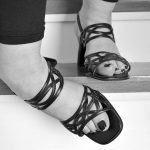Hearing loss is the partial loss of the ability to hear. This loss can range from mild to severe and can make the person unable to hear part of the voice signal, making it unintelligible and making communication difficult.
Hearing loss occurs when your ability to hear is reduced. Hearing loss prevents you from hearing speech and other sounds. The most common causes of hearing loss are noise and aging, and in most cases, it cannot be cured. Hearing loss is usually treated with hearing aids.
Symptoms
Signs and symptoms of hearing loss may include the following:
- Silence speech and other sounds
- Difficulty understanding words, especially when there is background noise or in a crowd.
- Difficulty hearing consonants
- Frequently ask others to speak slower, more clearly, and louder.
- Avoid participating in conversations
- Avoid certain social contexts
In addition, if you experience headache, numbness, or weakness, as well as chills, tachypnea, stiff neck, vomiting, sensitivity to light, or mental agitation, you should see a doctor. ’emergency. These symptoms can be linked to life-threatening situations, such as meningitis, which require immediate medical attention.
CAUSES OF HEARING LOSS
The causes of deafness and deafness can be congenital or acquired.
Congenital causes:
Congenital causes can determine hearing loss at birth or soon after. Hearing loss can be caused by hereditary and non-hereditary factors, or by complications during pregnancy and childbirth, including:
- maternal rubella, syphilis, or other infections during pregnancy;
- low birth weight;
- asphyxiation of labor (lack of oxygen at the time of childbirth);
- inappropriate use of certain drugs such as aminoglycosides, cytotoxic drugs, antimalarials, and diuretics;
- Severe jaundice during the neonatal period, which can damage the hearing nerve of the newborn.
Acquired causes:
Acquired causes can lead to hearing loss at any age.
- certain infectious diseases, such as meningitis, measles, and mumps;
- chronic ear infection;
- the presence of fluid in the ear (otitis media);
- the use of certain medicines, such as those used to treat neonatal infections, malaria, drug-resistant tuberculosis and various types of cancer;
- trauma to the head or ear;
- exposure to excessive noise, for example in working environments where noisy machinery is used or where explosions occur;
- exposure to very loud sounds during recreational activities, such as using personal audio devices at high volume for long periods of time, or in bars, clubs, concerts, and sporting events;
- aging, in particular, the degeneration of sensory cells; Yes
- obstruction of the ear canal caused by earwax or foreign objects.
Types of hearing loss:
There are four types of hearing loss:
- Conductive hearing loss
This is a hearing loss that occurs when there is a blockage for sound to pass from the outer ear to the middle ear. This type of hearing loss can often be treated with medication or surgery.
- Sensorineural hearing loss
It is hearing loss that occurs when the functioning of the inner ear or the auditory nerve is impaired.
- Mixed hearing loss This is hearing
loss due to conductive and sensorineural hearing loss.
- Hearing disorder spectrum of auditory neuropathy
Loss occurs when sound enters the ear normally, but due to damage to the inner ear or auditory nerve, the sound is not processed the same as the brain. can interpret
TREATMENT:

If you have hearing loss from a buildup of earwax in the ear canal, you can remove it yourself at home. Over-the-counter solutions can be used, including wax removers. Syringes can also be used to put lukewarm water into the external ear canal to remove wax. If a foreign object gets stuck in the ear canal, you may (depending on the object) be able to remove it at home. However, in this case, it is recommended to consult a audiologist before attempting to do so to avoid accidental injury to the ear.
If the cause of your hearing loss is something else, you should see your audiologist.











Add Comment